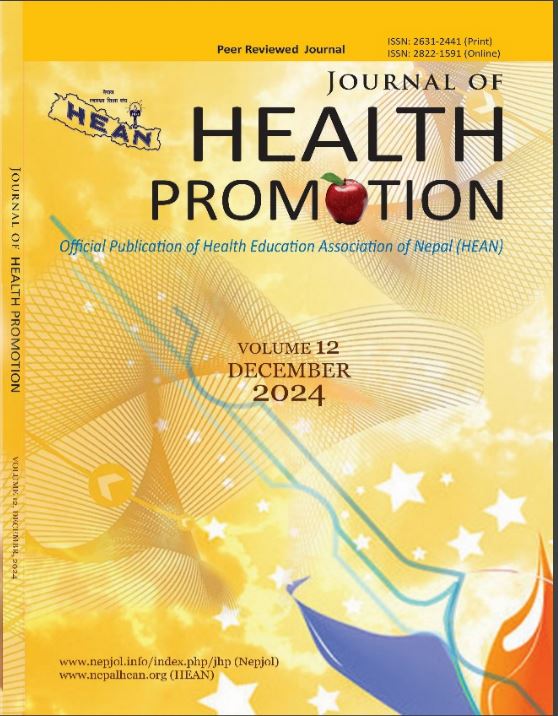Returning Home to Nepal after Modern Slavery: Opportunities for Health Promotion
DOI:
https://doi.org/10.3126/jhp.v12i1.72713Keywords:
Health promotion, human trafficking, modern slavery, NepalAbstract
In South Asian countries like Nepal human trafficking, a form of modern slavery, is a common crime aggravated by factors such as poverty, political instability, illiteracy, unemployment, and climate change. Despite being a global problem, modern slavery is understudied and poorly understood. This article reflects on our collective experiences of over two decades of researching labour migration. Victims of modern slavery are exploited and can experience significant physical, psychological, or sexual, and reproductive health problems. Until recently, there has been little research around the need and opportunities for health promotion and education in this vulnerable group. This article calls for more and better research into modern slavery which is crucial to help develop a range of social interventions, including health promotion ones, aimed those who have been trafficked and forced labour migration.
Downloads
Downloads
Published
How to Cite
Issue
Section
License
Copyright (c) 2024 Health Education Association of Nepal (HEAN)

This work is licensed under a Creative Commons Attribution-NonCommercial 4.0 International License.
© Health Education Network (HEAN)
Authors are required to transfer their copyright to the Health Education Association of Nepal (HEAN).
The materials of this publication may be reproduced, reviewed and translated, acknowledging the source "Journal of Health Promotion".




